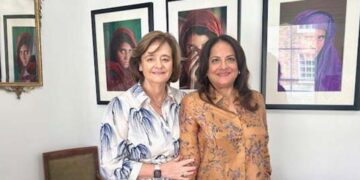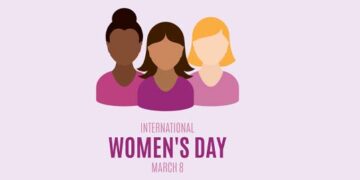 Impact investing and philanthropy are two distinct but complementary approaches to addressing social and environmental challenges. While both aim to create positive change in society, they differ in their strategies, objectives, and expected outcomes. In this overview, we will examine the differences and similarities between impact investing and philanthropy, their benefits, and limitations, and how they can be used to advance sustainable development.
Impact investing and philanthropy are two distinct but complementary approaches to addressing social and environmental challenges. While both aim to create positive change in society, they differ in their strategies, objectives, and expected outcomes. In this overview, we will examine the differences and similarities between impact investing and philanthropy, their benefits, and limitations, and how they can be used to advance sustainable development.
Also, for additional insight, we will share an interview that we did last month with Pamela Norley, the former President of Fidelity Charitable, to discuss both approaches and overall trends in giving.
Norley is a respected philanthropy and financial services executive, known for her leadership and expertise in philanthropy services and wealth management. She retired as the President of Fidelity Charitable, the largest provider of donor-advised funds in the United States, in 2022 after a stellar tenure.
Norley began her career as a lawyer, most representing financial institutions before joining Fidelity Investments in 1996 as Associate General Counsel. During her time at Fidelity, Norley held several leadership roles, including serving as Senior Vice President in Business Compliance, Senior Vice President in Health Care Product Sales, Senior Vice President in Corporate Business Development, Executive Vice President in Fidelity Consulting Group, Executive Vice President for Enterprise Relationship Management, and Executive Vice President of Enterprise Relationships and Talent Groups, always helping to grow the company’s business globally.
In 2016, Norley was appointed as the President of Fidelity Charitable, a subsidiary of Fidelity Investments that provides donor-advised funds and other philanthropic services to individual donors, RIAs, and nonprofit organizations. Under Norley’s leadership, Fidelity Charitable grew to become the largest grant maker in the United States with more than$30 billion in grants to over 300,000 charities on behalf of over 250,000 donors.
During her tenure at Fidelity Charitable, Norley was recognized as a leading expert on charitable giving and philanthropy and was widely respected for her strategic vision and commitment to social impact.
Norley was also a strong advocate for promoting greater transparency and accountability in the nonprofit sector. She championed initiatives to improve the effectiveness and efficiency of charitable giving, including efforts to promote best practices in nonprofit management and to measure the social impact of philanthropic investments.
Norley’s leadership at Fidelity Charitable was characterized by a strong commitment to innovation, collaboration, and impact. She worked closely with a wide range of philanthropic and nonprofit organizations to identify emerging trends and best practices in charitable giving and was known for her ability to build strong partnerships and networks across the sector.
Throughout her career, Norley has also been a vocal advocate for diversity and women’s leadership in the workplace. She has been recognized for her contributions to advancing women’s careers in finance and philanthropy and has spoken extensively on the topic at industry events and conferences.
In retirement, Norley serves on the Board of an asset management company, and she remains active in the philanthropic sector, serving as a board member and advisor to several nonprofit organizations focused on children’s health, civic engagement, and girls’ education in Kenya. She also advises a fintech start up and is an angel investor. She continues to be a highly respected leader in the field of philanthropy, and her contributions to promoting effective and impactful charitable giving have left a legacy.
The State of Philanthropy
Philanthropy is the act of giving money, time, or resources to support social causes or charitable organizations. It is often driven by personal values, empathy, and a desire to help others. Philanthropic giving can take many forms, including individual donations, corporate social responsibility programs, and foundations. Philanthropy is typically associated with grantmaking, which involves providing funds to nonprofit organizations, charities, or social enterprises to support their programs, services, or research. Grantmaking aims to address the root causes of social problems and create systemic change by funding innovative solutions and initiatives.
Impact investing, on the other hand, is a form of investing that seeks to generate social and environmental impact alongside financial returns. Impact investors invest in companies, funds, or projects that have the potential to create positive social and environmental outcomes while delivering financial returns. Impact investing aims to address social and environmental challenges by leveraging the power of the market to drive positive change. Impact investors use a range of financial instruments, including debt, equity, and hybrid instruments, to fund social enterprises, impact-focused funds, and other ventures that align with their values and objectives.
During our interview Norley helps us understand that the primary difference between impact investing and philanthropy is their approach to creating social and environmental impact. Philanthropy is based on the principle of giving and aims to provide resources to support social causes and initiatives.
Philanthropic giving is often motivated by altruism, empathy, and a desire to make a positive difference in the world. Impact investing, on the other hand, is based on the principle of investing and aims to generate both financial and social returns. Impact investing is often motivated by a desire to create social and environmental impact while also generating financial returns for investors.
Another key difference between impact investing and philanthropy is their expected outcomes. Philanthropy aims to support social causes and organizations by providing resources and funding for their programs and services. The impact of philanthropic giving is typically measured in terms of the number of people or communities that are served, the amount of funding that is provided, and the outcomes achieved.
Impact investing, on the other hand, aims to create sustainable social and environmental impact through investments that generate both financial and social returns. The impact of impact investing is typically measured in terms of the social and environmental outcomes achieved, as well as the financial returns generated for investors.
Norley reminds us that despite their differences, impact investing and philanthropy are complementary approaches to addressing social and environmental challenges. Philanthropic giving can provide critical funding and resources for social causes and organizations that may not have access to other sources of capital. Philanthropy can also fund early-stage ventures and initiatives that are too risky or unproven for impact investors. Impact investing, on the other hand, can provide capital and resources to support the growth and scale of social enterprises and impact-focused funds. Impact investing can also provide a market-based approach to addressing social and environmental challenges, which can complement philanthropy’s more traditional grantmaking approach.
Donor Advised Funds
An interesting area of philanthropy that Norley describes during our interview is Donor Advised Funds (DAFs). They are another important tool for philanthropic giving that are worth considering. DAFs are charitable giving accounts that allow donors to make charitable contributions to a fund, receive an immediate tax deduction, and then recommend grants to charities and nonprofit organizations over time. DAFs provide donors with greater flexibility and control over their charitable giving, allowing them to take a more strategic and deliberate approach to philanthropy.
Compared to traditional philanthropic giving, DAFs offer several advantages. DAFs allow donors to make charitable contributions that can grow tax-free, providing an opportunity to maximize the impact of their giving. DAFs also allow donors to give anonymously if they prefer, providing a level of privacy and confidentiality that may not be available through other forms of philanthropy. Additionally, DAFs can provide a convenient and streamlined way to manage charitable giving, reducing the administrative burden and costs associated with traditional philanthropic giving.
However, DAFs also have their limitations. While donors can recommend grants to charities and nonprofit organizations, they do not have direct control over how their funds are used. DAFs are also not required, by law, to distribute funds on a set timeline, which can delay the impact of charitable giving, although most DAF providers require active grantmaking by policy. Additionally, some critics argue that DAFs can be used as a tax-avoidance strategy, as donors can receive an immediate tax deduction for their contributions, even if the funds are not distributed to charities for many years.
The overall takeaway from our interview is that when comparing impact investing, philanthropy, and DAFs, it’s important to consider the unique advantages and limitations of each approach. Impact investing offers the potential to create sustainable social and environmental impact through market-based approaches, while philanthropy provides critical funding and resources to support social causes and organizations. DAFs provide donors with greater flexibility and control over their charitable giving, allowing them to take a more strategic and deliberate approach to philanthropy.
Impact investing, philanthropy, and DAFs are all important tools for addressing social and environmental challenges. Each approach has its own strengths and weaknesses, and they can be used in combination to create a more comprehensive and effective approach to social and environmental impact. Ultimately, the choice of which approach to use will depend on the individual’s goals, values, and resources, and should be based on a careful consideration of the potential benefits and limitations of each approach.
As with all guests on The Caring Economy, Pamela Norley exemplifies how leaders with purpose-driven lives and careers are shaping our contemporary lives for the better.
































